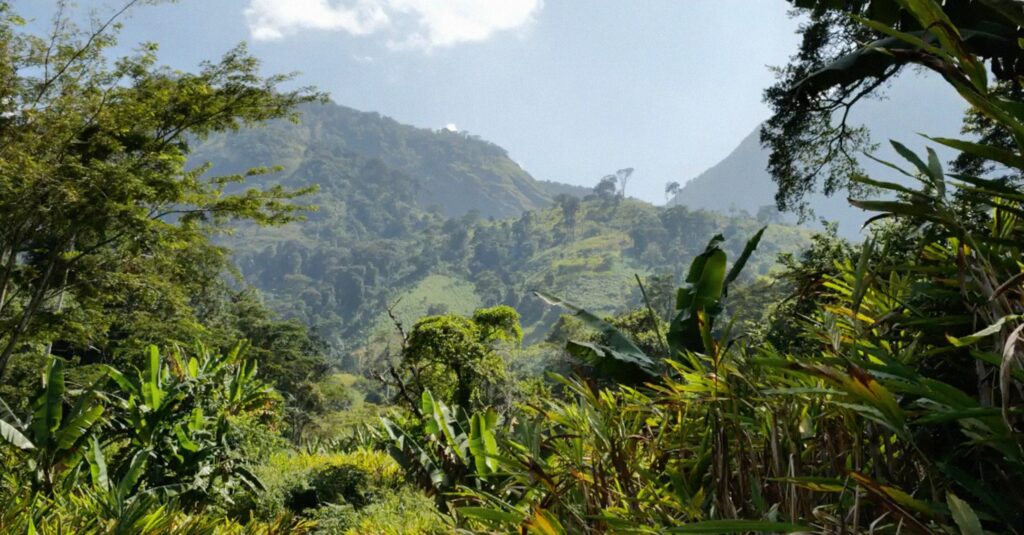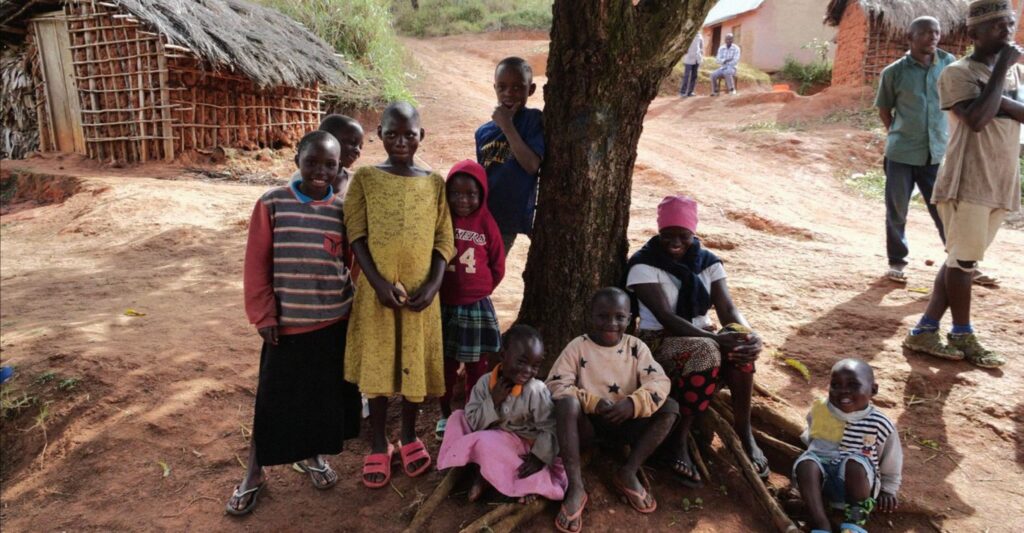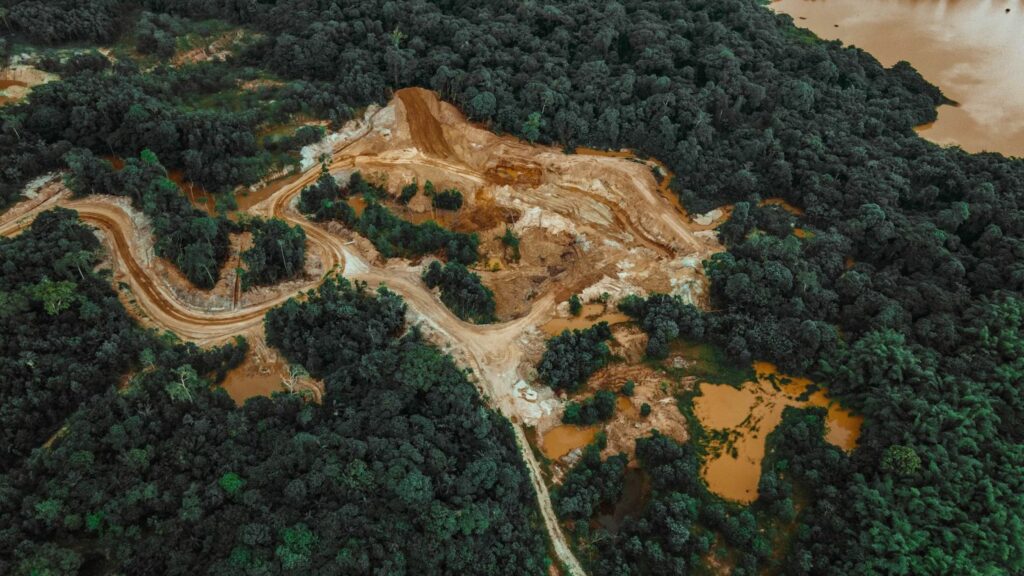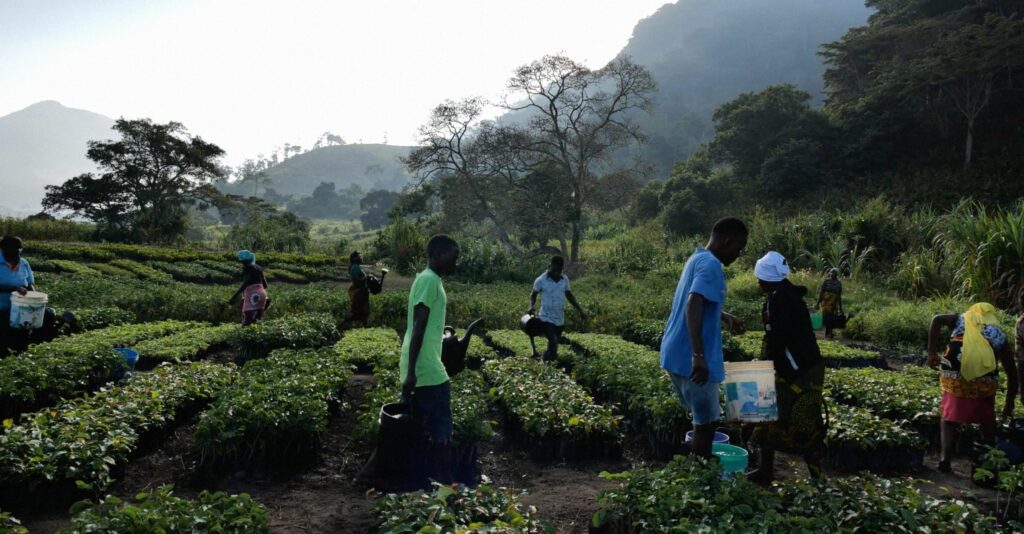Take a deep breath. The air fills your lungs, and the oxygen you breathe in could have been produced by a tree thousands of miles away. Our forests are the mighty lungs of our planet, and we are utterly dependent on them for our survival, climate stability, and biodiversity. In their masterful book, 'Why Forests? Why Now?' Frances Seymour and Jonah Busch weave a powerful narrative about the importance of forests and the urgent need for their conservation. But this isn't just about forests; it's about us. The air we breathe, our world, and the legacy we will leave behind. Right now, our collective actions are falling dangerously short. And we don’t know the implications, as we are dealing with an extremely complex system - nature.
Over the past three centuries, human activities have decimated one-third of this lung capacity, posing a grave threat to our climate and biodiversity. Deforestation ranks third, after China and the US, among leading causes of climate change.
Changing Our Perception of Forests
The crux of the problem is that forests, as of now, hold no inherent value. They are perceived as a free resource, available for unchecked exploitation. Our collective mindset needs to change. Each tree cut down for firewood, or each forest burnt down for farming should bear a cost. We sever our lungs tree by tree without realizing that we simultaneously destroy our living environment.
African Forests require our attention

African forests, spanning 18% of the world's tropical forests, are a significant part of this narrative. The Congo Basin alone houses the second-largest tropical forest on the planet after Amazon, covering a landmass larger than Argentina. But these life-sustaining ecosystems are now facing a grim reality. Africa's rapidly growing population means more children to feed, more land needed for farming, and more pressure on these already endangered forests.
Predicting the Impact of the growing population of Africa

Looking ahead, the population in Africa is expected to surge by 1 billion in the next fifty years. Even if agricultural practices reach European efficiency levels, there is an unavoidable doubling of farmland to accommodate this growth. Sadly, much of this land-use change will likely come at the expense of forests and grasslands, which will be a disaster for the climate and biodiversity.
Here's a thought-provoking scenario that brings the scale of the problem into perspective: imagine carving out 3 million square kilometers from Africa's current 8 million square kilometers of forest. The resulting CO2 emissions, combined with the loss of future CO2 sequestration capacity, would approximately equate to the total lifetime carbon footprint of every citizen in the European Union (assuming an average of 7 tons of CO2 carbon footprint per person per year)! However, the impact of such vast deforestation extends far beyond carbon emissions alone.
Such massive deforestation would have devastating consequences for biodiversity. Countless species would lose their natural habitats, leading to the extinction or severe decline of numerous plant and animal species. The delicate web of life that depends on these forests would be disrupted, leading to ecosystem imbalances and the potential collapse of entire ecological systems.
Our Disconnect from Nature
I have the privilege of working with Dr. Michele Menegon, a highly esteemed biologist who has dedicated over 25 years to researching and studying African rainforests, along with their diverse fauna and flora. Dr. Menegon is a leading thinker in understanding nature's complexity and the inherent reliance of human activity on the resources nature provides. I invited him to review this article, and I would like to share his insightful comments directly here:
You should emphasize, throughout the text, the fact that we are not talking about air, the lung of the planet (oceanic algae also play a decisive role), but about a complex system of which we have a limited understanding, and that to remove or compromise such a decisive element as forests and the innumerable roles they play in keeping the system functioning as we know it, means taking a decisive step towards a generalized collapse of global socio-economic systems which, as we well know, rest on very delicate balances, and are maintained on the promise that certain resources are available when we need them, and in fact, we created 'the civilized world' over a period of centuries extremely climatically stable and with highly predictable and programmable access to resources. This is already beginning to no longer be the case, at least in terms of access to seasonal rainfall, something on which the food production of hundreds of millions of people relies, and it will only get worse.
We can only try to mitigate the worst and revise our model for one that really does justice to the name we bear: Wise man, Homo sapiens. That is not really the case now.
Dr. Michele Menegon
Societies in the global north have, to a great extent, detached themselves from nature. This disconnect often leads us to believe that we can master and understand all aspects of the world around us, including nature. But the reality is that our comprehension is far more limited than we tend to admit. Our understanding is so limited that we often fail to grasp the extent of our ignorance. Nature, climate, and biodiversity embody complexities far beyond any human-designed system. If we struggle to predict the behaviors of our own economic systems, how can we presume to understand the vastly more complex system that is nature?
We can only imagine deforestation will have a significant impact, but the actual implications can be far more significant.
For sure, the local climate would be significantly affected. Forests contribute to the regulation of temperature, humidity, and rainfall patterns. Removing such a vast expanse of forest cover would disrupt local climate systems, leading to increased temperatures, decreased precipitation, and more frequent and severe droughts. The loss of this natural climate regulation would have far-reaching implications for local communities, agriculture, and overall environmental stability.

In this scenario, the combined impact on biodiversity and local climate, the scale of devastation becomes even more alarming. It is necessary to act now to prevent deforestation and protect these valuable ecosystems for the well-being of nature and humanity.
Imagine the cascading effects of this deforestation. Tens of million climate refugees are displaced from their homes. The destruction of the Earth's lungs is not just an environmental crisis; it's a humanitarian crisis, a socio-economic crisis. It's a call for us all to act. We can't afford to be idle spectators when the world around us changes irreversibly.
The Role of Consumer Choices in Deforestation

Sipping your morning coffee somewhere in Europe, and (perhaps) reading this blog post, you might think that "I'm not causing the deforestation. They should take better care of their forests. We have enough problems here." Well, have you ever enjoyed chocolate?
An average European consumes 5 kg of chocolate every year per person. Each 1kg of chocolate uses at least 300g of cacao beans. Cocoa farmers usually clear tropical forests to plant new cocoa trees rather than reusing the same land. They do this for you to enjoy, and it is their living. As a result, there is massive deforestation in West Africa, particularly in Ivory Coast. Experts estimate that 70% of the country's illegal deforestation is related to cocoa farming.
Let's consider the capital of Finland, Helsinki, for instance. On average, a Finnish person consumes about 6kg of chocolate annually. This equates to a requirement of approximately 2kg of cocoa beans per person for chocolate production. Producing 1.8kg of cocoa beans necessitates around 10 m2 of agricultural land, which often involves clearing 7-10 m2 of tropical forest. Therefore, a four-person family could indirectly cause the clearing of 30-40m2 of tropical forest through chocolate consumption.
In the greater Helsinki area, there are 1.5 million inhabitants. Collectively they cause 15 km2 size of tropical forest to be cut down, an area bigger than the central park (Keskuspuisto) of Helsinki, and 5 times bigger than the central park in New York. And chocolate is just one of many other tropical products we consume.
This is, of course, an oversimplification of the deforestation problem. Deforestation is influenced by many factors, including farming practices, government policies, and global supply chains. The cleared land also continued to produce cocoa beans in subsequent years, so not every piece of chocolate consumed resulted in the cutting down of a tree. But you get the point.
Being Part of the Solution!
Tropical deforestation is a huge human and social challenge. As I see it, building technology for humans to inhabit Mars dwarfs in the face of this problem we have on earth right now. It is difficult to solve because the challenge occurs so far away (global south) from the financial and technological resources (global north). People’s minds are focused on the problems close to them. It is not easy to pay attention to the problems so far away. But the distance is only subjective.

Learning to take a global view
As we navigate through the ongoing climate and natural crises, it becomes increasingly important to prioritize global awareness and understanding. Education is pivotal in shifting our focus from local to global perspectives. By fostering a mindset that recognizes the interconnectedness of climate issues worldwide, we can better allocate resources toward tackling the root causes of climate change. We must strive to comprehend the big picture and direct our efforts toward making substantial, systemic changes that will have a lasting impact on a global scale.
Allocate finances
To combat deforestation effectively, we must allocate our financial resources strategically. The voluntary carbon market is beginning to pave the way in this regard, offering corporations the opportunity to offset their carbon footprint by supporting tropical forest protection and reforestation initiatives. However, it is equally important to involve consumers in this movement. While corporations prioritize profit optimization, conscious action may not be inherent in their DNA. This is where consumer engagement becomes key, as they can spark corporate consciousness and demand action.
By actively participating in the voluntary carbon market, consumers can have an impact on preserving tropical forests. Consider this opportunity: when a family of four flies from Northern Europe to Southern Europe, they generate a carbon impact of 4000kg. It would take 250 tropical trees to absorb the same amount of carbon within one year. At current carbon credit prices, this contribution would amount to approximately 120 EUR or 30 EUR per flight ticket. Such an investment is well worth the immense value of stopping tropical deforestation. By leveraging transparent impact monitoring and payment solutions, consumers and corporations in the global north can contribute directly to preserving these vital ecosystems.
Policy decisions
Policy decisions are a fundamental aspect of our fight against tropical deforestation. The European Union has made commendable strides in this regard, mandating that EU companies should not purchase products contributing to tropical deforestation. This is an encouraging first step. However, to ensure its effectiveness, it's crucial to establish robust monitoring systems that verify these products indeed come from sustainable sources and don't contribute to deforestation.
Similarly, African nations need to implement clear policies and regulations related to voluntary carbon markets. Some countries, like Tanzania, are already taking significant measures in this respect, putting laws that govern carbon projects into place. Such policy initiatives are crucial for managing deforestation and ensuring the success of efforts to preserve our tropical forests.
Harnessing Technology to Counter Deforestation
Addressing tropical deforestation requires more than financial support; it calls for technology integration. With numerous projects focused on planting and safeguarding tropical forests, transparency in funding and impact becomes paramount. Thankfully, we now have better tools than ever at our disposal. Over 500 million Africans utilize mobile wallets, enabling transparent payments based on the actual impact achieved. Moreover, advanced technologies, including satellite imaging, drone surveillance, Lidar, and mobile monitoring, can be used in verifying the effectiveness of funds allocated to nature projects and ensuring the preservation of tropical forests
Final (but not last) words
Each one of us holds the power to make a difference. By embracing a global perspective, understanding the interconnectedness of climate issues, and prioritizing sustainable choices, we can actively contribute to preserving our planet's lungs. Whether through supporting initiatives in the voluntary carbon market, demanding sustainable sourcing and policies from corporations, or making conscious consumer choices, every action counts.
Our collective responsibility is to become true 'wise beings', Homo sapiens, who acknowledge that humans can’t exist without nature and that we need to do everything to preserve it.
Keep an eye out for my upcoming posts, where I'll be taking you on an unexpected journey that changed my life. In our next rendezvous, I'll be sharing the surprising turn my career took, shifting gears from the hustle and bustle of being a tech entrepreneur in the city to embracing the enriching life of a nature entrepreneur. You'll get an insider's view of this profound transition and maybe even find inspiration for your path. So, stay connected, and let's explore this transformation together in my next post.
In the third part of this series, we'll dive deep into the intricate world of the voluntary carbon credit market. We'll explore its challenges, its potential, and how my company, AirImpact, is contributing by developing a robust AI-powered MRV (Monitoring, Reporting, and Verification) program to help nature-based project developers to establish transparent, high-integrity projects to stop deforestation.
